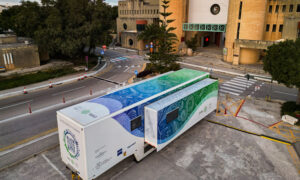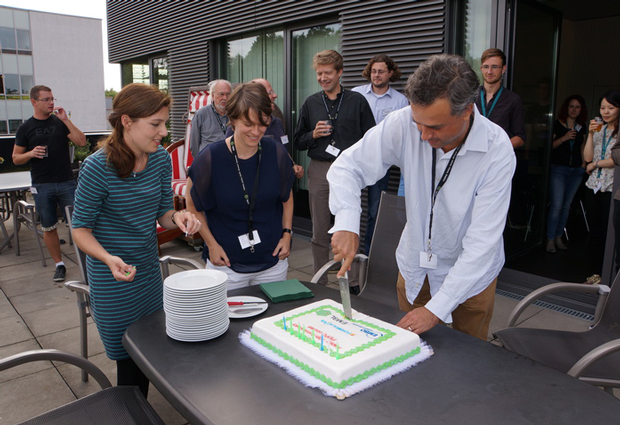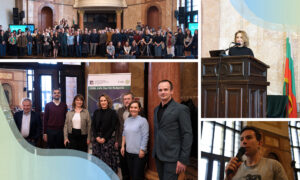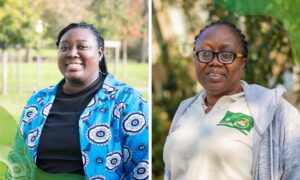
10th PEPC course in Hamburg
The PEPC course celebrated its 10th anniversary in Hamburg from the 12 – 20 September this year

From the 12 – 20 September, 20 students from across Europe and beyond came to EMBL in Hamburg for the 10th iteration of the EMBO-funded workshop on Protein Expression, Purification and Characterisation (PEPC). Since 1998 the PEPC course has been a regular part of EMBL’s training programme and to mark the occasion the organisers invited tutors and students from the early days for a celebratory mini-symposium. Founding course organiser and EMBL alumnus Paul Tucker gave an entertaining talk looking back at the previous courses and how the programme has evolved along with developments in the field. Paul noted how many participants over the years have gone on to become PIs themselves, who have in turn encouraged their students to attend, or have returned as course tutors, indicating the value of the course. One encounter has been of particular benefit to Paul himself. “One participant from 2002, Preben Morth, then joined my group for his PhD, and went on to become a regular tutor as well as receiving the John Kendrew Award in June 2010,” said Paul proudly.

“The main ingredient for a good course is the participants themselves,” said Paul. The course has always been oversubscribed, and with 250 applications, 2016 has been a record breaking year. Paul noted how difficult it has been to select the participants who would most benefit from the course from such a large pool of applicants, but how they always managed to pull together a good group. Alex McPherson from the University of California, who has also been teaching from 1998 onwards, felt that this year’s course was one of the best yet. “The students were very keen and active,” he said. “We had some great discussions together.”

The field of structural biology has also changed over the past 18 years. In her keynote talk, Teresa Bergfors from the University of Uppsala likened the efforts to crystallise a protein to human relationships. In the past, biochemists would make the protein, and specialised people like herself would crystallise them. If crystallisation failed, tensions built up between the biochemists and the crystallisation experts. Who was to blame for the failure: the protein, the biochemist or the crystalliser? It was necessary to build a positive relationship in order to be productive. Nowadays the students must master the whole pipeline and cannot ‘blame’ collaborators for failed experiments. “Your left hand has to know what your right hand is doing,” says current organiser EMBL group leader Rob Meijers. “The purpose of the course was always to get the students to have a go at everything. No kits – just back to the basics.” Paul reminds the audience that the ‘C’ in ‘PEPC’ used to stand for ‘Crystallisation’ but how with time the process for understanding proteins has become much more than just crystallisation. This year’s course also had a number of new additions to the programme. Frank Bernard from Goethe-University in Frankfurt, introduced the topic of cell free expression, and there was a six-hour tutorial on mammalian expression of membrane proteins given by David Hacker from the EPFL in Lausanne, Switzerland, that resonated well with the students.
“The enthusiasm and overwhelming interest for the course shows that even after 18 years, protein production and characterisation is an essential topic to cover in this format,” says Meijers. “With the 10th edition behind us, we are looking to broaden the horizon further to include sample preparation for electron microscopy, native mass spectrometry and free electron laser applications.”


